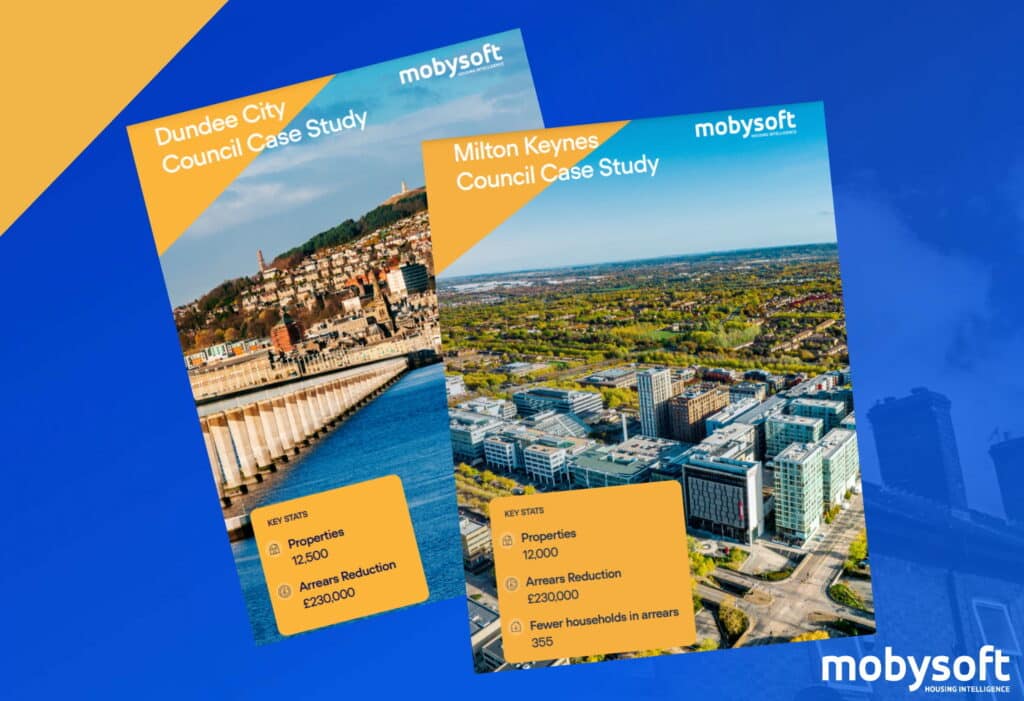Full-Time Report: Are You on the Right Path?
Here at Mobysoft, we’re more than aware of the challenges social housing providers face when it comes to measuring and improving their performance, keeping up with new trends, and mitigating risks. That’s why we created our Full-Time Report sessions – a series of handy regional webinars that help landlords make sense of performance data and effectively benchmark against peer organisations in order to drive efficiencies. Read on to find out how social landlords can use the Full-Time Report to measure their performance, improve their practices, and stay ahead of emerging trends.
Measuring Performance Against Others
One of the key benefits of the Full-Time Report is the ability to compare your organisation’s performance against other social landlords. This can help you identify areas where you’re performing well and areas where you need to improve. For example, you might compare your rent collection rates to other social landlords of a similar size and standing, or drill down into metrics such as caseload completion, rent collection rates, contact resolution rates, and workload ratio per officer/ per 1000 properties. If you’re lagging behind, you can investigate why that is and take steps to improve your performance.

How Do You Shape Up Regionally?
The Full-Time Report helps social housing providers interpret regional data on a range of key performance indicators, such as arrears levels and workloads, caseload completion levels and arrangements success rates. Fully dissecting and understanding key stats will help you see how you’re performing compared to other comparable social landlords and help your organisation make data-driven decisions. For example, if you’re based in the North West, you will be able to compare your performance to other social landlords in that region. This can be especially valuable if you’re trying to identify areas in which cost savings can be made, as it gives you a sense of how you stack up against your competitors and learn how similar organisations maximised efficiency.
How to Improve Performance
Of course, simply knowing where you stand isn’t enough – you also need to take action to improve your performance. The Full-Time Report can help with this too, by highlighting best practices and case studies from other social landlords and their leading practitioners.

Best Practice Case Studies
As mentioned, the Full-Time Report includes case studies from other social landlords that have successfully implemented new practices or improved their performance in other ways. These case studies can be a rich source of inspiration and guidance for social landlords looking to improve their own practices. They can also help you identify potential pitfalls to avoid when implementing new initiatives, defining management strategy, and allocating resources to key functions such as Former Tenant Arrears.
Peer to Peer Knowledge Sharing
In addition to case studies, the Full-Time Report provides opportunities for social landlords to learn from their peers in the sector. The series of regionally focuses webinars doesn’t just function as data review/management strategy session, it’s actually all that and a networking event combined. The Full-Time Report events offer an open forum where you can hear from other social landlords about their experiences and ask questions – a valuable way to gain new insights and connect with others in the industry.

Massive Dataset = Massive Insights
The Full-Time Report is based on Mobysoft’s unrivalled (and incredibly large) data set, which provides invaluable insights into trends and best practices across the social housing sector. This data set can help social landlords identify emerging trends and challenges, such as the cost of living crisis creating new cohorts of at-risk tenants, the effects of UC migration, as well as how social housing’s recruitment and retention challenges are affecting front-line performance. By staying on top of these trends, social landlords can better plan for the future and take proactive steps to mitigate risks.
What’s Coming Down the Tracks?
Speaking of mitigating risks, the Full-Time Report can also help social landlords anticipate what’s coming down the tracks. For example, the report might highlight potential changes to legislation or government policy that could impact the social housing sector. By staying informed about any potential legislative shifts, new regulations, or changes to governance structures, social landlords can be better prepared to adapt and respond. In effectively ‘taking the temperature’ of the sector and your organisation’s performance within it now, you’re infinitely better placed to mitigate risks before they arise.
If you’d like to learn more about how our Full-Time Report sessions can provide a wealth of insight that goes beyond the headline figures and really allows you to ‘get under the bonnet’ around what is contributing to higher levels of performance, head over to our sign-up page today to register your interest. Hurry though as places are going fast!
- Temporary Accommodation: How To Manage TA Effectively - June 17, 2023
- Full-Time Report: Are You on the Right Path? - April 14, 2023
- Universal Credit Mass Migration: Three Critical Effects on Social Housing Providers - January 13, 2023